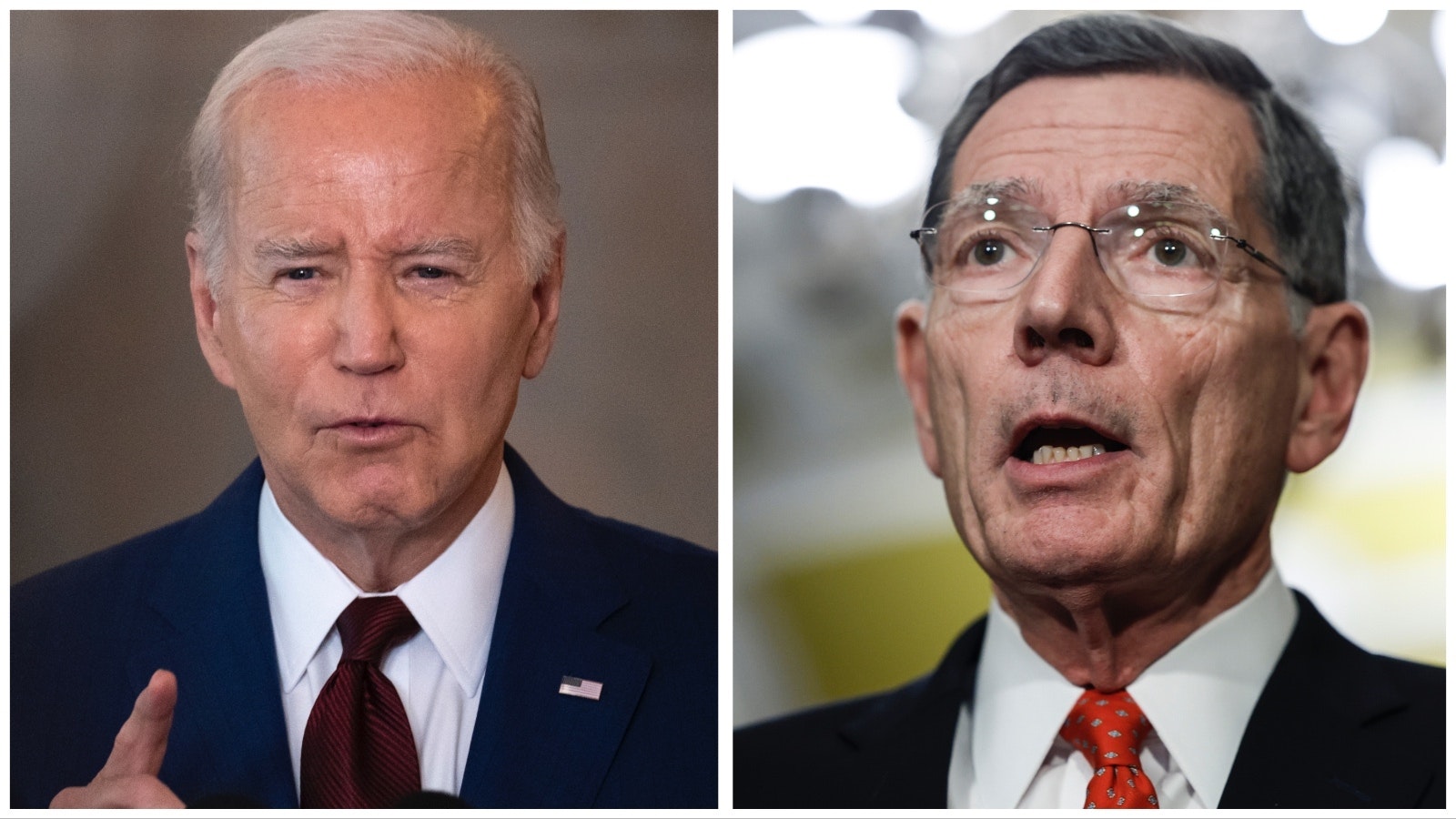The U.S. Department of Energy scrapped $200 million in funding to Microvast, a technology company with strong links to China.
“I’m stunned it took the Biden administration this long to admit the obvious: No company beholden to Communist China should be considered for U.S. government grants or loans,” Sen. John Barrasso, R-Wyoming, told Cowboy State Daily.
Barrasso had criticized the DOE’s original decision at the time to give the company the $200 million.
Heavy Chinese Influence
The company was among the 20 across 12 states that were selected in October to receive $2.8 billion in funding to stimulate domestic manufacturing of batteries for electric vehicles and grid storage facilities.
Energy Secretary Jennifer Grandholm said in a statement announcing the selections that the grant recipients would help advance a “clean energy future” that’s “American-made.”
Yet, Microvast’s filings with the U.S. Security and Exchange Commission (SEC) at the time stated that 60% of its revenues come from China and only 1% from the U.S.
The company also stated that its business activities are heavily influenced by the Chinese government, which could “intervene at any time” with or without notice.
While the selections did not guarantee any of the companies would receive the funding, Microvast’s ties to China sparked a backlash against the department.
Vetting Process
Barrasso has been probing the DOE with questions as to how it vets recipients of funding awards.
In December he wrote to Granholm, asking for details as to the process the department uses to review award recipients. Barrasso also raised the issue at a February hearing of the Senate Committee on Energy and Natural Resources.
Department of Energy Deputy Secretary Deputy David Turk testified that the department was trying to distribute hundreds of millions of dollars from the Infrastructure Investment and Jobs Act, and do so with urgency.
Barrasso related the information contained in Microvast’s SEC filings showing it had strong ties to China. He said the People’s Republic of China (PRC) is mentioned 471 times in the filings.
“Did anyone at the DOE actually do their homework? Did anybody actually bother to read this?” Barrasso asked, holding up a copy of the SEC filings.
Turk replied that the department was doing a due-diligence review as part of a post-selection process, which includes members of the intelligence community, and that there are review procedures conducted throughout the entire selection and award process.
“We do this eyes-wide-open, looking after our strategic interest,” Turk said.
Barrasso said the due-diligence should have been done prior to the selection.
‘Very Vigilant’
During an April committee hearing, Barrasso asked Granholm if the funding would go forward. He said at the time the company was selected for the awards, Microvast CEO Wu Yang bragged that its battery technology was developed in China.
Granholm said the selections were not awards and the department was being “very vigilant” as it conducted negotiations with the companies that were selected to receive funding.
In a statement following the February committee hearing, Barrasso said that the announcements of the selections make no mention of any uncertainty with the awards, leading companies and investors to believe the negotiations are just a formality.
He said share prices of publicly traded companies selected for the award increase almost 14% at the time of the selection announcements.
Breakneck Pace
Tyler Lindholm, state director for Americans for Prosperity in Wyoming and a former state lawmaker, praised Barrasso for his efforts in calling attention to the issue.
He said it’s unlikely that a Wyoming company even made the short list for any of the awards, but having to compete with Chinese companies just makes the grant process all the more unfair to American small businesses.
“So you’ve got all these small American companies competing against the largest communist regime in the world,” Lindholm said.
He said so long as this spending spree continues in Washington, D.C., as part of a goal to transition to wind, solar, electric vehicles and batteries, we are likely to see more cases like this.
“We’re trying to rush at a breakneck pace to encourage inventing technology that currently doesn’t exist,” Lindholm said.
Barring China
In announcing Microvast won’t get funding, the department offered no explanation for the decision.
“The Department of Energy has finally retreated from sending U.S. taxpayer dollars to Microvast, an electric vehicle battery company with close ties to Communist China,” Barrasso told Cowboy State Daily.
Barrasso recently introduced The Supporting American Independence in Innovation Act, which would bar a company with ties to China from receiving taxpayer money.
He said after months of oversight letters and questions in committee hearings about the department’s process, he never got any substantial response.
Barrasso said the administration should immediately reject other applications with similar ties, adding that the department should “also overhaul its grant making process and conduct due diligence before issuing press releases.”





